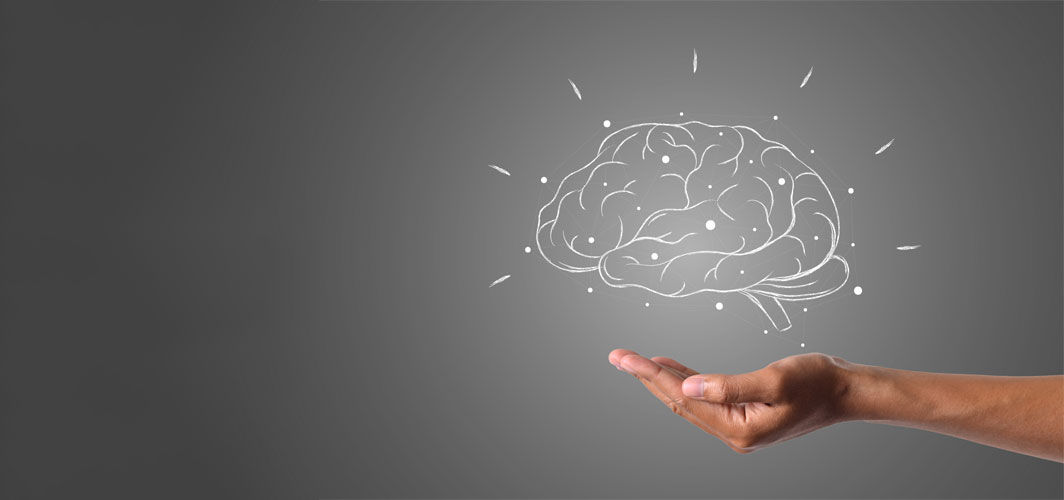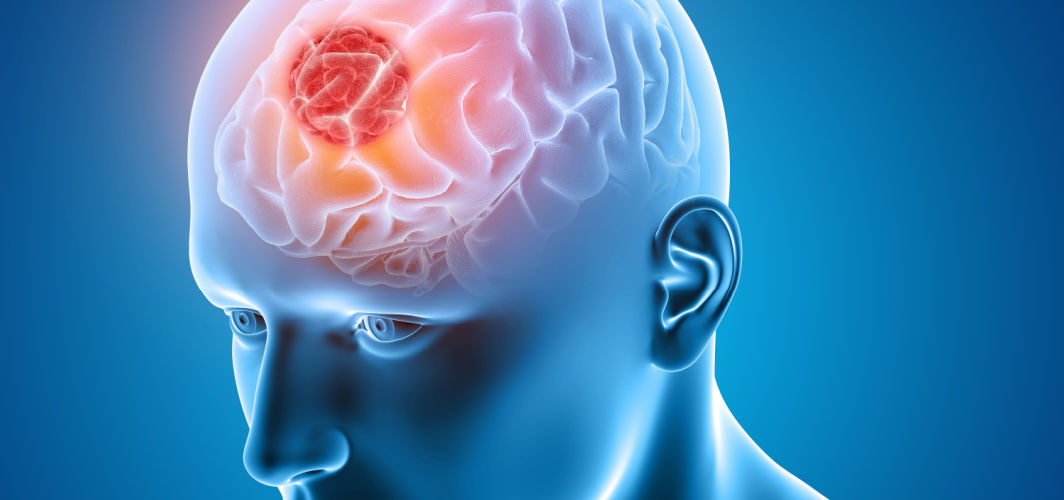Neurology
Memory, Behaviour & Beyond: All About The ‘Gray’ Of Alzheimer’s Disease
9 min read
By Dr Debanjan Banerjee, Consultant, Geriatric Psychiatrist, Apollo Multispecialty Hospitals, Kolkata - 21 September 2022, Updated on - 18 October 2022
Share this article
0
0 like

As India tends to be the most populous country in a few years, it is also greying rapidly, which means it is among the top ten countries ageing at the fastest rate. Once known as ‘the country of the young, the trends are changing. UN and Help Age statistics show that the elderly population (above 60 years of age) in India will rise from 8.6% (as calculated in 2011) to 16% in 2040 and 24% in 2050. This increase in the elderly population definitely shows a positive effect on life expectancy. However, it brings in the concerns of multiple age-related physical, medical and social diseases.
One such disease is dementia, an illness of the brain known to cause a gradual loss in memory and other cognitive abilities (brain-related functions like attention, judgement, understanding, speech, direction sense, and social behaviour). Dementia creates an immense financial and social burden for the affected as well as their families. Alzheimer’s disease is the commonest form of dementia. Even though it is well-mentioned in the digital and printed media, myriads of myths and misconceptions related to this illness have created an unnecessary stigma. According to the Alzheimer’s Disease International group, 2 out of every 3 people have little or no understanding of ‘dementia’ in their respective countries, needing urgent global action.
September is marked as World Alzheimer’s Month, as a part of the International Campaign for awareness about this illness, an initiative that started in 2012. As we recently crossed this World Alzheimer’s Day, 21st September, let's address some questions about the illness and join hands in fighting this global problem.
Q: What is Alzheimer’s dementia (AD)?
Ans: Alzheimer’s dementia is an illness of the brain, commonly seen in people above 65 years. However, it can also start early (after 55 years) and rarely very early (after 45 years). It is the most common type of dementia.
Dementia is a condition in which, the brain slowly but steadily loses its capacity to function. Memory is mainly affected, however, it can also hamper speech, thinking, judgement, sense of direction, social reactions and behaviour. Dementia can occur due to various reasons some of which include untreated hypothyroidism, Vitamin B12 deficiency or persistent head injuries.
Note: ALL AGE-RELATED FORGETFULNESS ARE NOT DEMENTIA. DEMENTIA IS A MEDICAL CONDITION AND IS NECESSARY TO BE DIAGNOSED BY A QUALIFIED MEDICAL PERSON.
Q: Are all dementias caused by AD?
Ans: No! The exact type of dementia is medically confirmed by the kind of abnormality in the nerve cells at a microscopic level (which can only be done after death). The type of dementia can roughly be estimated by the age of onset, course and type of symptoms, the speed of progress and the appearance of the brain on CT or MRI scans.
Besides AD, the other common types are vascular (due to strokes), mixed (which can have both AD and vascular features in the brain) and Frontotemporal dementia (in which the frontal and temporal lobes of the brain are affected). Dementia can also be associated with Parkinson’s disease, a known neurological condition.
Q: What causes AD?
Ans: The structure of a protein gets deformed in the body and gets repeatedly deposited in the temporal lobes and hippocampus (the areas of the brain that controls memory and speech) leading to nerve damage and shrinking of the brain in size. The brain of a patient with AD loses the normal number of folds and curvatures as compared to a healthy brain. Genetic influence and a decrease of a chemical called acetylcholine in certain parts of the brain are considered some of the reasons for AD.
Q: What are the symptoms of AD?
Ans: AD can initially present as slow forgetfulness of recent events, misplacing things, difficulty in calculating and naming common objects, difficulty in recalling dates, days, and names and recognizing familiar faces. It progresses through mild, moderate and severe stages and with the increase in the illness, speech and memory get affected accordingly. In the moderate or severe stage, the person might need partial to complete assistance for daily tasks.
There might also be certain problems in the behaviour of the person. For instance, suspecting others of stealing or intrusion, getting angry and stubborn, impulsivity, hearing voices, agitation or disturbances in sleep and wandering. However, most of these behaviour patterns can be controlled by minor modifications in our interactions or environment. In some cases, small doses of medicines can be given to ease the situation.
Q: Is there any pre-dementia stage?
Ans: Yes. Pre-dementia stage is the one where the process of nerve cell destruction begins in the brain. There might be extra effort or difficulty to do the usual activities but there is no dependency. It is also called Mild Cognitive Impairment (MCI). While no medicines are required for this condition, a regular schedule and continuing brain-related activities can help reverse the condition.
Q: Can medical illnesses lead to AD?
Ans: There is no medical proof of any medical illness causing AD directly. However, diseases like Diabetes, Hypertension (high blood pressure), obesity and brain strokes markedly increase the risk of AD by 5 to 10 times. The more the conditions, the more the risk.
Q: Genetics is a risk factor. So, am I at risk if my parents have AD?
Ans: This is perhaps the commonest question we encounter in our daily practice. Yes, genes are one of the risk factors. However, unlike disorders like thalassemia or haemophilia, where the child has a 25% to 100% definite risk of inheriting the illness if their parents are affected, AD may or may not develop in the child. It has been noticed that out of more than 97% of the cases of AD we see, almost 95% of them have healthy children.
Q: If I suspect I am at risk, is there any measure or medicine to prevent it?
Ans: No! However, healthy lifestyle changes such as controlling weight, maintaining optimal blood sugars and blood pressure, and quitting tobacco and alcohol are always recommended, irrespective of your risk quotient. If you feel you have any issue with your memory after you cross the 50-year mark, please consult the doctor at the earliest.
Q: Is treatment for AD available?
Ans: Yes. However, there is no reversal or cure for the condition. The progression of the illness can be slowed with a certain group of medications. Moreover, the problems in behaviour and brain abilities can also be improved to some extent with medicines.
The patient must continue to do all the possible activities as before (like reading newspapers or listening to music), keep the brain active by practising reading, writing and calculations, spending time with family and friends, having a daily schedule, getting good sleep and discussing old memories/photographs are important to preserve the brain activity. The medical conditions of the patient must be addressed promptly as they might not be able to express their needs efficiently.
Q: Can AD be prevented?
Ans: There are multiple studies which have shown both positive and negative results. There are no medications to prevent AD, however, in the early years and even in the pre-dementia stage keeping the brain ‘working and active’ delays further damage. It is called the ‘use it or lose it’ hypothesis. Maintaining a healthy lifestyle, daily exercise, practising Yoga, staying active mentally, positive socialization, good nutrition, solving word/numerical puzzles or online games, reading books and of course knowing multiple languages have been shown to reduce and delay brain damage.
Q: Can people suffering from AD, have other mental illnesses?
Ans: Yes. Just like others, they can have any other physical or mental illnesses like depression. Recent changes in behaviour, weight loss, decreased sleep, agitation, crying and food refusal can be early signs of a mental illness. Please visit your doctor/psychiatrist at the earliest if such problems are noticed.
Q: Will AD gradually progress?
Ans: Unfortunately, yes it would. The time to reach moderate or severe stages might be different for different people (5 to 15 years). In these stages, it might be difficult for them to manage self-care and perform basic things like eating, bathing, brushing or performing toilet chores. It is best that at every stage we prepare for it, and discuss it with the family and the treating doctor, trying to give the best possible care to the affected person. Any physical condition must be treated and food intake must be monitored. In more severe stages, the patient can be totally bed-bound. At this stage, the person may need a nurse or caregiver, trained in dementia care.
Q: Any suggestions for the caregivers of patients with dementia?
Ans: Hope and support are of utmost importance. In our practice, we learn more from the caregivers of our patients, than from any book or article. They have their own innovative ways to deal with the crisis. The caregivers would experience immense stress, however, it is important to prevent ‘burn-out’, depression, anxiety and sleep disturbances. They must try and get some leisure/ personal time for themselves and seek help at the earliest for themselves if needed.
Alzheimer’s disease might not be cured but if managed properly, a meaningful difference can be made in the lives of the affected and their families. Understanding a problem enables us to deal with it. People affected with AD deserve the best quality of life just like any of us. Let us all pledge to join hands in doing so. We love to cherish our memories, don’t we; but at any point in time, there are 4.1 million Indians who cannot. Let us remember them, for as long as we can.
** Disclaimer: The above discussion is primarily for the purpose of public awareness and does not include the specifics of any treatment or management plan, long-term dementia rehabilitation care and dementia-care homes and services. The readers are suggested to take professional help for the above.
For more information,
Neurology
Leave Comment
Recommended for you

Neurology
Sharpen Your Brain With These 7 Foods
The food we eat influences not only our body but our brain as well. Brain health-promoting foods help reduce oxidative stress and inflammation. Some of the foods that can sharpen your memory include dark chocolate, coffee, fatty fish, nuts, broccoli, avocados, eggs, and soy.

Neurology
10 Surprising Facts About Brain Stroke That You Didn't Know
Did you know a brain stroke can occur at any age and cause severe disability or death? Here are ten such startling facts that you must know about strokes!

Neurology
9 Early Symptoms Of Brain Tumors
Discover the early signs of a brain tumour, such as persistent headaches, seizures and changes in vision or speech. Early detection is crucial for effective treatment.
Subscribe
Sign up for our free Health Library Daily Newsletter
Get doctor-approved health tips, news, and more.
Recommended for you

Neurology
Sharpen Your Brain With These 7 Foods
The food we eat influences not only our body but our brain as well. Brain health-promoting foods help reduce oxidative stress and inflammation. Some of the foods that can sharpen your memory include dark chocolate, coffee, fatty fish, nuts, broccoli, avocados, eggs, and soy.

Neurology
10 Surprising Facts About Brain Stroke That You Didn't Know
Did you know a brain stroke can occur at any age and cause severe disability or death? Here are ten such startling facts that you must know about strokes!

Neurology
9 Early Symptoms Of Brain Tumors
Discover the early signs of a brain tumour, such as persistent headaches, seizures and changes in vision or speech. Early detection is crucial for effective treatment.